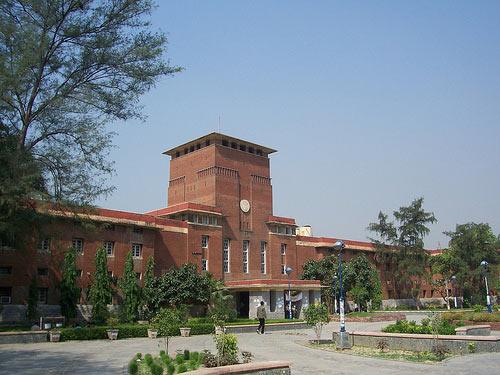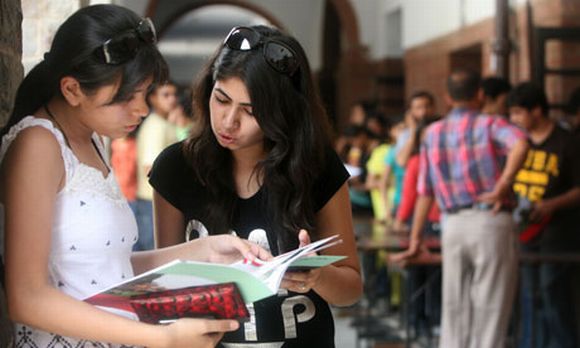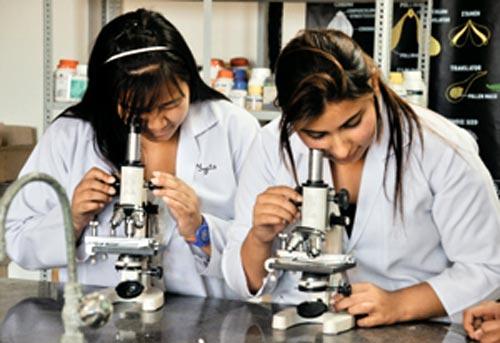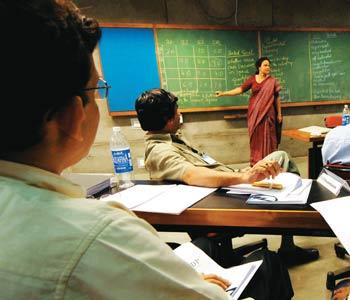
The undergraduate programme spread across eight semesters will be implemented July 2013 onwards. Read on for details
The Vice chancellor of the University of Delhi Dinesh Singh has given a go ahead for the Four Year Undergraduate Programme (FYUP), which is claimed to bring the Indian higher education system on par with the American system of education.
The new undergraduate programme will replace the existing 10+2+3 format of education with the 10+2+4 format like in the West and will be implemented July 2013 onwards.
The new format however will not affect those who are already pursuing their graduation in the 10+2+3 format.
Let's look at what the new programme has to offer for students who will be pursuing college in July 2013.
Please click NEXT to continue reading...

Eight semesters
The four year programme will be spread across two semesters annually, totalling eight semesters in four years.
More subjects to choose from
There will be 11 new foundation courses and a total of 26 interdisciplinary courses or DC (20 Disciplinary Courses in Discipline 1 and six in Discipline 2) that a student can choose to study over the four-year period.
Choose a major and minor
While in the three year programme, an undergraduate could only choose one subject as a major for specialisation, the new four-year programme will allow the student to choose both a major and a minor subject for specialisation.
In the first year, the student can choose his/her major also known as Discipline 1 which will be the main subject of specialisation and comprise a total of 20 papers.
At the end of Semester 2, the student will have to pick a subject as minor (also known as Discipline 2) for Semester 3, which will have six papers spread between semester 3 and 8.
This means that a student who will be joining college in the 2013-14 academic session will have to take seven foundation courses or FC (four in the first semester and three in second) along with four DC I papers in the first year.
For a detailed list of courses and the semester pattern, refer this link: https://www.du.ac.in/fileadmin/DU/Academics/pdf/22012013_structure_on_web.pdf

The most interesting part of the programme is that students irrespective of their stream of specialisation can choose from these interdisciplinary options for their honours.
This means that a student of natural sciences can choose to pursue political science or history while a student of English literature can choose to study physics, chemistry or even Mathematics as their minor.
Application courses
From semester two onwards up to the fourth semester, there will also be four application courses (one per semester).
Irrespective of DC I or DC II chosen by a student, application courses allow the students to choose from a wide range of courses from history to music.

According to the new programme, students will have three exit options to choose from:
Those who choose to exit the course after two years will be awarded an Associate Baccalaureate degree.
Those who complete three years will receive a Baccalaureate degree.
Those who complete four years will receive a Baccalaureate with Honours or a BTech degree.
Students who choose to exit in the second and third year can return to complete the subsequent programme within a span of 10 years.

Internal assessment
Under the old system, internal assessment comprised 25 marks and had three components: 10 marks for class test, 10 for assignment and five marks towards regular attendance.
Under the new system, 15 marks will be assigned for presentation, which could be in the form of a project, or presentation in group.
While one student delivers a presentation, the others are expected to participate by asking questions.
This activity will be monitored and evaluated for both communication and writing skills.
Promotion
Under the new system, students must have an aggregate of 40 per cent if they want to exit the course after two or three years.
Like any other professional programme, if a student fails to clear a particular subject in one semester, s/he will be promoted to the next semester and have an opportunity to take the exam later.
To clear the four year programme, students will require an aggregate of 50 per cent.